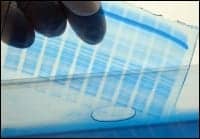Meridian Bioscience Inc, Cincinnati, announced that it has successfully completed beta trials for two new illumigene molecular amplification tests. These assays are designed to specifically detect the DNA of Chlamydia trachomatis and Neisseria gonorrhoeae, respectively, from both swab and urine samples. For the first time, these two new assays will also incorporate Meridian Bioscience’s new nucleic acid preparation device which further simplifies the illumigene test procedure.
This sample preparation device does not require excessive sample manipulation steps, such as centrifugations or washing, and takes 5 minutes to process a clinical specimen. In the beta trial, performance of the new illumigene assays was assessed against two market-leading molecular platforms on a statistically significant cohort of symptomatic patients. The trials were successful and satisfied the design criteria for both assays. Total test time, from specimen to results, for these new illumigene molecular tests was approximately 1 hour on the illumipro-10 Integrated Incubator/Reader. It is expected that the clinical trials for regulatory submission will begin later in the second quarter and should be completed later in the third quarter.
Chlamydia trachomatis (CT) and Neisseria gonorrhoeae (NG) infections are two of the most common sexually transmitted infections worldwide. The WHO (World Health Organization) estimates that 92 million new cases of Chlamydia trachomatis and 62 million new cases of Neisseria gonorrhoeae occur every year. It is estimated that 4 million Americans are infected each year by Chlamydia trachomatis and 1 million infected by Neisseria gonorrhoeae. CDC reported 1.2 million cases of Chlamydia in 2009 in the US, yet data indicate that more than half of sexually active individuals are undiagnosed.
[source: Meridian Bioscience Inc]


